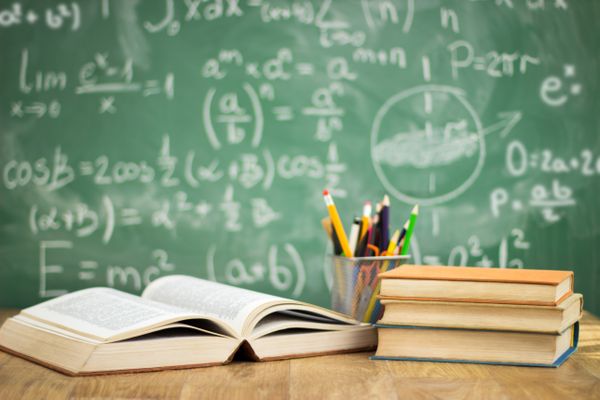10.1.2
Factors Improving Development
Priorities for Development
Priorities for Development
Improvements in health, education, life expectancy and human rights are seen by some as more significant goals for development, though economic growth is seen as the best means of delivering them.


Priorities for development
Priorities for development
- A lot of people believe that development should focus on health, life expectancy and human rights (see HDI map).
- The late Hans Rosling was a key advocate of this.
- Advancements in health, life expectancy and human rights are only likely to be delivered by economic growth.
- Improvements in environmental quality (such as reducing pollution levels) are also seen as being vital to the well-being of both the world and its inhabitants.
- But, often economic growth goes against the environment.


Education
Education
- Education is crucial for development. A literate, numerate, enterprising and skilled workforce is effective human capital.
- Education promises a better job and higher wages, and therefore material benefits that raise quality of life.
- Education is essential for knowing and standing up for human rights.
- It allows a person to be informed about personal health, hygiene and diet, so increasing LE.
- It prevents the basic problem of illiteracy.
Attitiudes to Education and UNESCO
Attitiudes to Education and UNESCO
Most countries recognise the human right of access to education. United Nations Educational, Scientific and Cultural Organization (UNESCO) works to ensure this.


Education differences
Education differences
- There are some countries (e.g. Pakistan) where there is clear gender discrimination, with females being increasingly barred or deterred from access to other levels of education.
- There are significant gender differences in literacy in some parts of the world, especially much of sub-Saharan Africa, southern Asia and the middle east.
- Access to education is stopped by other obstacles - e.g. ethnicity, physical and mental disability, social class and wealth.


UNESCO
UNESCO
- UNESCO stands for the United Nations Educational, Scientific and Cultural Organization.
- It seeks ‘to ensure that every child has access to quality education as a fundamental human right and as a prerequisite for human development’.
- It aims for peace and security by promoting international collaboration through education, science and culture.
- It also promotes cultural diversity, aiming to secure the world’s cultural and natural heritage.
1Tectonic Processes & Hazards
1.1Tectonic Processes & Hazards
1.2Natural Disasters
1.3Natural Disaster Case Studies
1.4Trends & Patterns
2Option 2A: Glaciated Landscapes & Change
2.1Glaciated Landscapes Over Time
2.2Periglacial Landscapes
2.3Glacial Processes
2.4Glacial Landforms
3Option 2B: Coastal Landscapes & Change
3.1Coastal Landscapes
3.2Coastal Erosion & Deposition
3.3Coastal Risks
4Globalisation
4.1Globalisation
4.2Negatives of Globalisation
4.3Global Shift
4.5Culture
4.6Measuring Development
5Option 4A: Regenerating Places
5.1Types of Economies
5.2Function of Places
5.3Regeneration
5.4Regeneration Case Studies
6Option 4B: Diverse Places
6.1Population Structure
6.2Past & Present Connections
6.3Urban & Rural Spaces
6.4Diversity
6.5Urban & Rural Case Studies
6.6Case Study - Tower Hamlets
6.7Case Study - Sturton-le-Steeple
7The Water Cycle & Water Insecurity (A2 only)
7.1Hydrological Processes Global to Local
7.2Influences on the Water Cycle
7.3Water Insecurity
8The Carbon Cycle & Energy Security (A2 only)
8.1The Carbon Cycle
8.2Energy Consumption
8.3Alternative Energy
8.4Growing Demand for Resources
9Superpowers (A2 only)
9.1Superpowers
9.2Hard & Soft Power
9.2.1Hard & Soft Power
9.2.2Emerging Powers - China Rivalry
9.2.3Emerging Powers - Chinese Sources of Power
9.2.4Emerging Powers - Brazil
9.2.5Emerging Powers - Russia
9.2.6Emerging Powers - India
9.2.7Theories of Development
9.2.8Power Case Studies: Chinese One Belt One Road
9.2.9Power Case Studies: Pakistan Nuclear Arms
9.2.10Power Case Studies: OPEC
9.3IGOs, TNCs & Alliances
10Option 8A: Health & Human Rights (A2 only)
10.1Human Development
10.2Role of Governments & IGOs
10.3Human Rights
10.4Interventions
11Option 8B: Migration & Identity (A2 only)
11.1Globalisation & Migration
11.2Consequences of Migration
11.3Nation States
11.4Responses to Global Migration
Jump to other topics
1Tectonic Processes & Hazards
1.1Tectonic Processes & Hazards
1.2Natural Disasters
1.3Natural Disaster Case Studies
1.4Trends & Patterns
2Option 2A: Glaciated Landscapes & Change
2.1Glaciated Landscapes Over Time
2.2Periglacial Landscapes
2.3Glacial Processes
2.4Glacial Landforms
3Option 2B: Coastal Landscapes & Change
3.1Coastal Landscapes
3.2Coastal Erosion & Deposition
3.3Coastal Risks
4Globalisation
4.1Globalisation
4.2Negatives of Globalisation
4.3Global Shift
4.5Culture
4.6Measuring Development
5Option 4A: Regenerating Places
5.1Types of Economies
5.2Function of Places
5.3Regeneration
5.4Regeneration Case Studies
6Option 4B: Diverse Places
6.1Population Structure
6.2Past & Present Connections
6.3Urban & Rural Spaces
6.4Diversity
6.5Urban & Rural Case Studies
6.6Case Study - Tower Hamlets
6.7Case Study - Sturton-le-Steeple
7The Water Cycle & Water Insecurity (A2 only)
7.1Hydrological Processes Global to Local
7.2Influences on the Water Cycle
7.3Water Insecurity
8The Carbon Cycle & Energy Security (A2 only)
8.1The Carbon Cycle
8.2Energy Consumption
8.3Alternative Energy
8.4Growing Demand for Resources
9Superpowers (A2 only)
9.1Superpowers
9.2Hard & Soft Power
9.2.1Hard & Soft Power
9.2.2Emerging Powers - China Rivalry
9.2.3Emerging Powers - Chinese Sources of Power
9.2.4Emerging Powers - Brazil
9.2.5Emerging Powers - Russia
9.2.6Emerging Powers - India
9.2.7Theories of Development
9.2.8Power Case Studies: Chinese One Belt One Road
9.2.9Power Case Studies: Pakistan Nuclear Arms
9.2.10Power Case Studies: OPEC
9.3IGOs, TNCs & Alliances
10Option 8A: Health & Human Rights (A2 only)
10.1Human Development
10.2Role of Governments & IGOs
10.3Human Rights
10.4Interventions
11Option 8B: Migration & Identity (A2 only)
11.1Globalisation & Migration
11.2Consequences of Migration
11.3Nation States
11.4Responses to Global Migration
Unlock your full potential with Seneca Premium
Unlimited access to 10,000+ open-ended exam questions
Mini-mock exams based on your study history
Unlock 800+ premium courses & e-books